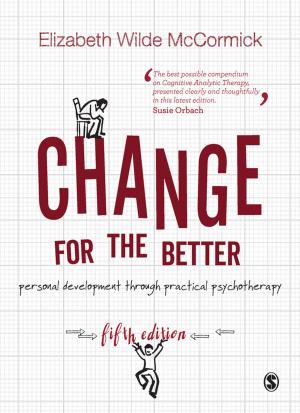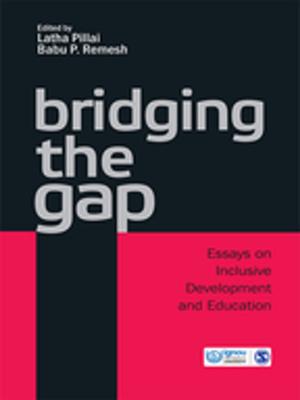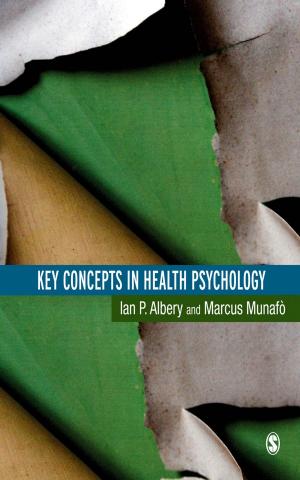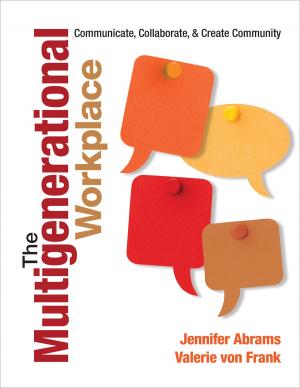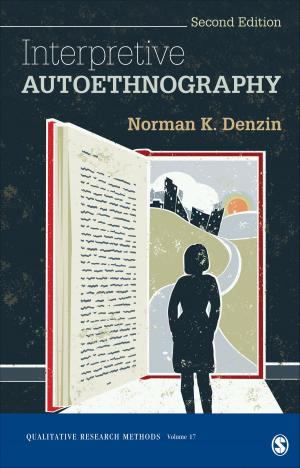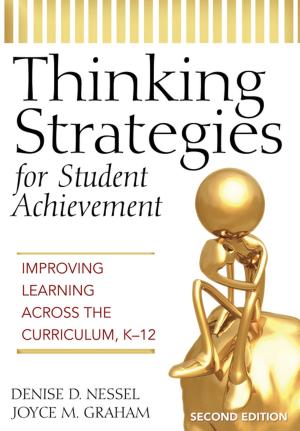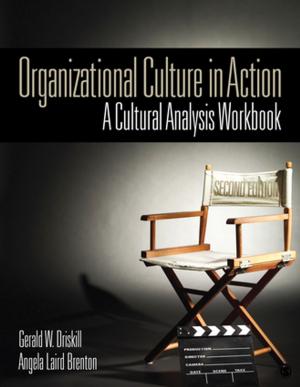Early Numeracy
Assessment for Teaching and Intervention
Nonfiction, Reference & Language, Education & Teaching, Teaching, Teaching Methods| Author: | Robert J Wright, Mr James Martland, Ann K Stafford | ISBN: | 9781446227145 |
| Publisher: | SAGE Publications | Publication: | January 5, 2006 |
| Imprint: | SAGE Publications Ltd | Language: | English |
| Author: | Robert J Wright, Mr James Martland, Ann K Stafford |
| ISBN: | 9781446227145 |
| Publisher: | SAGE Publications |
| Publication: | January 5, 2006 |
| Imprint: | SAGE Publications Ltd |
| Language: | English |
'Unlike many books based on research work this book doesn't just let teachers know what is going wrong with children's learning it actually gives some practical advice about what to do next. The whole book is based upon extensive observation and recording of individual children and their difficulties with mathematics. These children are the most difficult to plan for in a busy classroom and the authors appreciate the small steps and the different learning styles approaches needed for these children. This approach fits well with the NNS wave and springboard materials but takes the analysis of the individual's difficulties to a more detailed level. The book brings together research carried out across a range of countries and therefore shows the versatility of the approaches taken. This will be a very useful book for trainee teachers as it exemplifies how to use assessment to feed into teaching. It will be helpful for class teachers and mathematics co-ordinators as well as SENCOs to assist in improving the teaching and learning for specific children in our schools' - Mary Briggs, Primary and Early Years PGCE Co-ordinator, Institute of Education, University of Warwick
'This is a highly practical resource that will be appreciated by classroom and specialist teachers alike. It will provide teachers new to the Math Recovery program with practical help and support to diagnose errors and misconceptions in early numeracy. Practicing Math Recovery Specialists will be thrilled with the addition of four new highly focused assessments and an elaboration of the Learning Framework in Number.
Early Numeracy is admirably grounded in international research and well-established theory, characteristics that are much sought after in the current data driven educational environment.
Like many others, I was drawn to Math Recovery after reading the first edition of Early Numeracy. This second edition is a treasure - it is exciting to consider the impact it will have on children and teachers, and to the growth of the Math Recovery program' - Audrey Murray, Lead Teacher, Midwest Math Recovery Training Center, Minneapolis
This text has been fully updated to include developments and refinements brought about by widespread international application of the assessment tools in the Mathematics Recovery Programme. The book will help practitioners to identify and provide detailed analyses of all children but especially those who are able and those who underachieve in early numeracy. It will enable teachers, learning support personnel, numeracy consultants and educational psychologists to advise colleagues and parents on children's number knowledge and strategies for early numeracy.
The Mathematics Recovery Programme has been successfully applied in Australia, the United Kingdom and Ireland, the United States and Canada, both in specialist interventions and classroom settings. The revised version shows how familiarisation with, and understanding of, the diagnostic assessment tools has allowed teachers to become more knowledgeable in understanding children's difficulties and misconceptions, and more skilled and confident in planning programmes of intervention and monitoring the children's progress.
This new edition includes:
- Integrated frameworks of useful tasks for assessing children's number knowledge and strategies;
- Four separate and revised diagnostic assessment interviews;
- Assessments for addition and subtraction strategies, Base Ten Arithmetical strategies, Early Grouping strategies, and Advanced Grouping strategies in the four operations;
- How the assessment process has impacted significantly on teachers' professional development and contributed to the raising of standards in early numeracy.
'Unlike many books based on research work this book doesn't just let teachers know what is going wrong with children's learning it actually gives some practical advice about what to do next. The whole book is based upon extensive observation and recording of individual children and their difficulties with mathematics. These children are the most difficult to plan for in a busy classroom and the authors appreciate the small steps and the different learning styles approaches needed for these children. This approach fits well with the NNS wave and springboard materials but takes the analysis of the individual's difficulties to a more detailed level. The book brings together research carried out across a range of countries and therefore shows the versatility of the approaches taken. This will be a very useful book for trainee teachers as it exemplifies how to use assessment to feed into teaching. It will be helpful for class teachers and mathematics co-ordinators as well as SENCOs to assist in improving the teaching and learning for specific children in our schools' - Mary Briggs, Primary and Early Years PGCE Co-ordinator, Institute of Education, University of Warwick
'This is a highly practical resource that will be appreciated by classroom and specialist teachers alike. It will provide teachers new to the Math Recovery program with practical help and support to diagnose errors and misconceptions in early numeracy. Practicing Math Recovery Specialists will be thrilled with the addition of four new highly focused assessments and an elaboration of the Learning Framework in Number.
Early Numeracy is admirably grounded in international research and well-established theory, characteristics that are much sought after in the current data driven educational environment.
Like many others, I was drawn to Math Recovery after reading the first edition of Early Numeracy. This second edition is a treasure - it is exciting to consider the impact it will have on children and teachers, and to the growth of the Math Recovery program' - Audrey Murray, Lead Teacher, Midwest Math Recovery Training Center, Minneapolis
This text has been fully updated to include developments and refinements brought about by widespread international application of the assessment tools in the Mathematics Recovery Programme. The book will help practitioners to identify and provide detailed analyses of all children but especially those who are able and those who underachieve in early numeracy. It will enable teachers, learning support personnel, numeracy consultants and educational psychologists to advise colleagues and parents on children's number knowledge and strategies for early numeracy.
The Mathematics Recovery Programme has been successfully applied in Australia, the United Kingdom and Ireland, the United States and Canada, both in specialist interventions and classroom settings. The revised version shows how familiarisation with, and understanding of, the diagnostic assessment tools has allowed teachers to become more knowledgeable in understanding children's difficulties and misconceptions, and more skilled and confident in planning programmes of intervention and monitoring the children's progress.
This new edition includes:
- Integrated frameworks of useful tasks for assessing children's number knowledge and strategies;
- Four separate and revised diagnostic assessment interviews;
- Assessments for addition and subtraction strategies, Base Ten Arithmetical strategies, Early Grouping strategies, and Advanced Grouping strategies in the four operations;
- How the assessment process has impacted significantly on teachers' professional development and contributed to the raising of standards in early numeracy.



